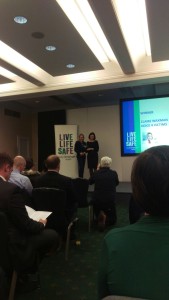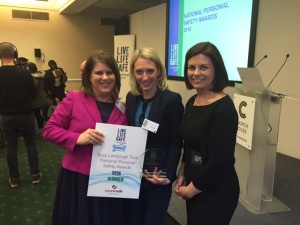A backbench business debate was held on Thursday 15 September 2016 on Domestic abuse victims in family law courts. This debate was scheduled by the Backbench Business Committee following a representation from Angela Smith, Maria Miller and Peter Kyle. This debate was sparked by a January 2016 Women’s Aid report highlighting the cases of nineteen children killed by perpetrators of domestic abuse. The killings were made possible through unsafe child contact arrangements, formal and informal. Over half of the child contact arrangements were ordered through the courts.
This report and campaign supports the Voice4Victims Abuse of Process campaign, which looks specifically at how perpetrators are abusing their rights to various legal platforms – family courts, civil courts, private prosecutions, false allegations – in order to continue their unwanted contact and harassment of their victims.
Sir Keir Starmer, MP has been supporting our work and said the following about our work during Thursday’s debate ‘ The second point that I want to make concerns the abuse of process, an issue that I think is rising on the agenda. Perpetrators of domestic abuse use our courts— both criminal and civil, but it is on the civil courts that the torch has not been shone—to continue the perpetration of control and harassment of victims. I pay tribute to Claire Waxman, herself a victim of harassment. She and Voice4Victims have raised this issue on numerous occasions. There are two types of abuse of process. First, there are the individuals who bring proceedings in which they have no legitimate interest: they are doing it simply to ensure that the person whom they have been stalking or harassing is forced to come to court to strike out their claim. Because these are people with no legitimate interest, the courts will strike out the claim when they get to grips with it, as a vexatious claim. However, the victim will have to go to court to argue that it is vexatious, and that is all that the perpetrator wants: for that person to come to court. That is what happened to Claire Waxman, and it has happened to other victims. This problem could be solved by Christmas. Again, I am looking straight across at the Government Front Bench. It ought to be possible for someone working for the senior judiciary to devise a way to ensure that such cases are subject to a special strike-out procedure that does not require the victim to go to court and take the initiative, and some third party does it instead. I honestly think that a month or two of hard work, and some real courage and determination, could produce a system whereby a practice direction could be issued and the problem could be put to one side. The second type of abuse of process is more difficult to deal with. In these cases, the perpetrator has an interest—a child, for instance—and it is therefore not possible to say that that individual simply should not be allowed to be in court at all. In those circumstances, it is a question of looking at special measures, support and different ways of arranging family and other courts to ensure that they are not used with ulterior motives, because there is growing evidence that is happening. These are difficult cases, but it must be possible to provide support for victims, special measures and, indeed, a more proactive role for judges. A big change in the criminal courts was that judges began to be much more proactive and to say, “This is my problem. I must deal with it. It is my duty to provide a better environment for victims on their journey through our courts.” What today’s debate throws up is that these issues are not going to go away. They need to be solved, and I think they can be solved across the House, but that will require listening, non-defensiveness and commitment to bringing about real change. Real change has already happened in the criminal sphere; it can happen in the family courts as well, and it need not take 15 years if lessons from one jurisdiction are borrowed by the other.’

